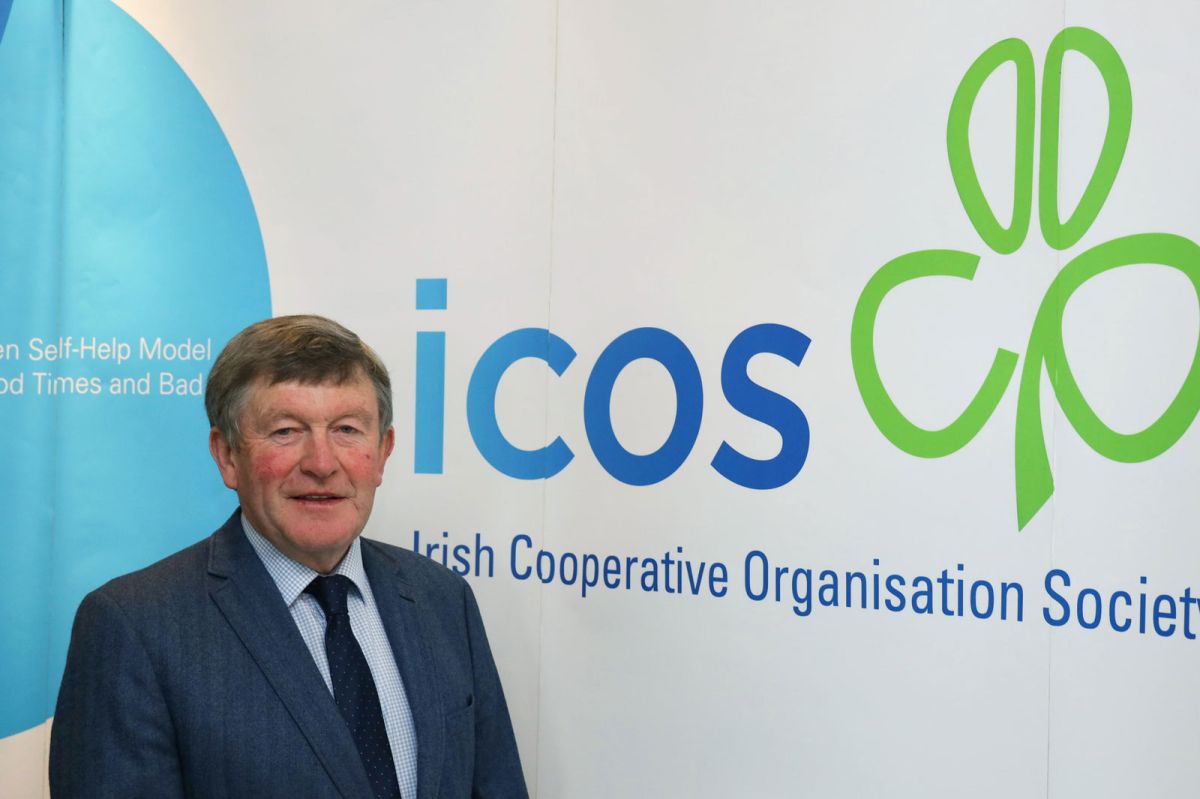ICOS president highlights the importance of fairness for farmers in EU

ICOS currently represents 130 co-operative enterprises in Ireland, with over 150,000 individual members, a combined turnover of €14bn, and employs more than 12,000 people.
It was a year earlier in January 1972 that then Taoiseach, Jack Lynch and foreign affairs minister, Patrick Hillery signed the Accession Treaty in the Egmont Palace in Brussels. The following May, 83 per cent of the electorate voted to join the then European Economic Community (EEC). This came over a decade after Ireland’s first efforts to join the founding six. On January 1, 1973, Ireland along with the UK and Denmark officially took their places as members.
ICOS and the Irish Farmers’ Association (IFA) opened offices the same year to coincide with Ireland joining the EEC. Both organisations marked the occasion jointly together at a function held in Brussels last week.
Speaking at the weekend, ICOS president, James O’Donnell said: “Over the past five decades, we have been able to represent our members’ best interests by being at the coalface of where the big decisions are made. We look forward to continuing to collaborate with the European co-operative movement and to support each other in the spirit of co-operation and promoting enterprise.
“We are very proud to continue to have a strong presence here in Brussels and of being part of COPA COGECA. As we look ahead, we are entering very testing times for farmers and for co-ops. Many of the challenges, that are coming with force at us, are because of legislation being proposed and driven by the EU institutions. So, it has never been more important than it is now to underpin that strong united voice at the heart of the EU.”
He also used the occasion to highlight the importance of fairness for farmers within the corridors of the EU Commission and the EU Parliament.
“We must insist that our voices are heard at Commission level, at Parliament level and at Council level. I urge those of you from the Commission and the parliament who are with us this evening to listen to our concerns and work with us in supporting the vital role which our farmers, food producers and co-ops play across Europe,” he stated.
The ICOS president and the board also held meetings with Irish MEPs in the European Parliament highlighting ICOS concerns in relation to several policy proposals currently being debated at Commission and Parliament level.
Back in 1973, ICOS was known as the Irish Agricultural Organisation Society (IAOS). Both ICOS and the IFA foresaw the importance of having a presence in Brussels where all the big decisions would be made affecting the way of farming back home. In 1973, the Irish economy was predominantly an agricultural one, dependent on exports to the UK. The population was just over three million and farmers accounted for 25 per cent of the total workforce. Today that figure is just around 4 per cent. That is skewed by the fact that, back then, most farms were small and extensively so.
The ICOS Annual Report for 1972 states that in that year, 124 dairy co-ops handled 485m gallons, or about 2.1bn litres of milk. By 2023, that figure has more than quadrupled. The value of milk processed at accession to the EEC was equivalent to about €150 million. The value of Irish dairy exports last year was nearly 50 times that number. Entering the EEC gave farmers access to the single market and, over the past five decades, Irish agriculture and rural development has secured CAP payments of almost €65 billion.





